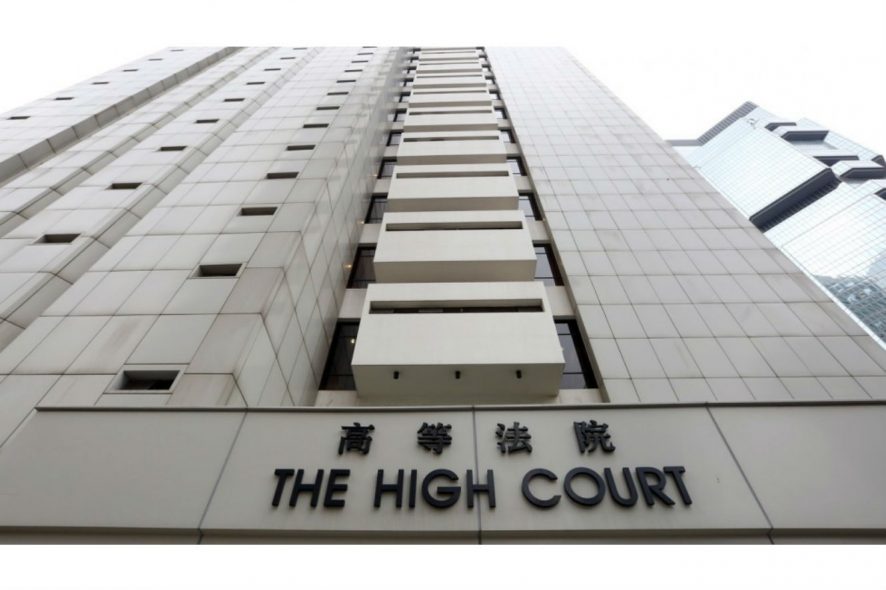Hong Kong High Court: A Division Bench of Godfrey Lam and Anderson Chow, JJ. was hearing applications of judicial review seeking to impugn the Emergency Regulations Ordinance (ERO) and the Prohibition of Face Covering Regulation (PFCR) made thereunder as invalid and unconstitutional.
ERO and PFCR were enacted in the wake of anti-government protests in Hong Kong against the bill allowing extradition of people to mainland China. ERO was made by the Chief Executive in Council (CEIC) following months of protests, civil unrest and danger on the streets of Hong Kong SAR. The PFCR was made pursuant to the ERO on the ground of public danger to facilitate police investigation and to serve as a deterrent against the violent and illegal acts of masked protestors.
The applicants filed the application on the following six grounds:
- Delegation of legislative power ground
ERO was unconstitutional because it amounted to an impermissible delegation of legislative power by the legislature to the CEIC and contravened the constitutional framework under the Basic Law (Hong Kong’s mini-Constitution).
2. Implied repeal ground
ERO was impliedly repealed by Section 3(2) of the Hong Kong Bill of Rights Ordinance either entirely or to the extent, it is inconsistent with Section 5 of that latter Ordinance; alternatively, it was impliedly repealed by Article 4 of the International Covenant on Civil and Political Rights.
3. Prescribed by law ground
The ERO, to the extent that it empowers the CEIC to make regulations restricting fundamental rights protected by the Basic Law and the Hong Kong Bill of Rights, falls foul of the prescribed by law requirement in Article 39 of the Basic Law.
4. Principle of legality ground
ERO did not allow the CEIC to adopt measures that infringe the fundamental rights of the individual in circumstances far removed from emergency situations. The PFCR was, therefore, ultra vires ERO.
5. Section 3 and Section 5 Proportionality ground
The applicants contended that Section 3 and Section 5 of the PFCR fail to satisfy the proportionality test explained in the case of Hysan Development Co Ltd v. Town Planning Board, (2016) 19 HKCFAR 372.
The respondents submitted that there was nothing in the Basic Law expressly preventing delegation of legislative powers. They further contended that the Government should be given discretion in assessing the measures necessary to restrict unlawful conduct disrupting the ordinary life of the law-abiding citizens just like it had the discretion to enable lawful activities. It had been argued that the ERO is intended to deal with occasions of emergency or public danger and the regulations made thereunder are intended to be temporary measures.
This Court held that the ERO, insofar as it empowers the CEIC to make regulations on any occasion of public danger, was incompatible with the Basic Law. The Court left open the question of the constitutionality of the ERO insofar as it related to any occasion of an emergency. The Court rejected the challenge based on ground 2 and held that ERO is not impliedly repealed by Section 3 of HKBORO. Whenever the ERO is invoked in situations not falling within the kind of public emergency referred to in the HKBORO, the measures adopted will have to comply with HKBORO. The Court rejected ground 3 and held that the ERO, as the source of power for making regulations, cannot be attacked on its own under the prescribed by law requirement as it does not itself purport to limit any fundamental rights. The regulations enacted under it can purport to curtail the fundamental rights and in that case, the entire relevant body of law including the regulations and measures have to be taken together to see whether they meet the prescribed by law requirement. The Court did not deal with the ground 4 as it was found to be an alternate ground to ground 1 and the Court had already upheld ground 1.
The Court relied on the 4-step proportionality test laid down in Hysan Development Co. Ltd. v. Town Planning Board, (2016) 19 HKCFAR 372 to check the legal validity of the restrictions imposed by Section 3 and Section 5 of the PFCR. It held that Sections 3 and Section 5 failed to meet the proportionality test because the restrictions that they impose on fundamental rights go further than is reasonably necessary for the furtherance of the objectives.
In the light of these conclusions, this Court held that there will be a further hearing for the parties to make submissions on the appropriate relief and costs. So, for now, the mask ban remains in place as it has not yet been officially struck down.[Kwok Wing Hang v. Chief Executive in Council, HCAL 2945 of 2019, decided on 18-11-2019]







